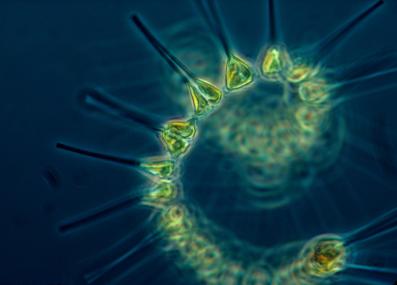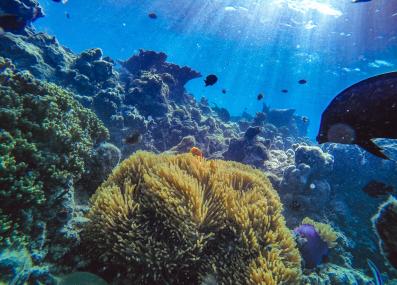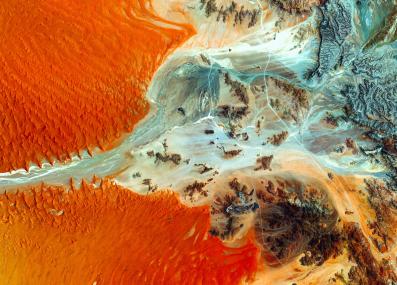Have a question?
Why is the ocean so important for climate change?
The ocean acts as a “buffer” that protects our atmosphere from seeing the full effects of climate change.
Updated August 8, 2025
Since the 1700s, humans have raised the amount of greenhouse gases in the atmosphere by over 50%, trapping a huge amount of heat on Earth. But only a tiny fraction of that heat has actually stayed in the air. “The ocean has taken up about 90% of the heat that’s been trapped in our atmosphere,” says Dr. Stephanie Dutkiewicz, senior research scientist at the MIT Center for Global Change Science. Without the ocean absorbing heat, our planet’s air temperature would be changing much faster.
Why does the ocean absorb so much heat? It’s because water molecules can take in much more heat than the molecules in the air. “Think about the fact that if you stay in the water too long, you get very cold because the water is taking your heat,” says Dutkiewicz. “But if you stay in the air, you don’t really feel that different.”
Not only has the ocean absorbed heat, but it is also estimated that it has absorbed one third of the carbon dioxide humans have emitted since the industrial revolution. Carbon dioxide, or CO2, is the most important greenhouse gas driving climate change. As we’ve added extra CO2 to the atmosphere, much of it has dissolved in the ocean’s surface waters, in an attempt to bring the atmosphere and ocean CO2 back into equilibrium.
Tiny organisms called phytoplankton are also very important in the Earth’s carbon cycle. They take up CO2 and sunlight through photosynthesis to grow and reproduce. When phytoplankton die, a small portion of the carbon they have taken in sinks to the deep ocean, forming a large “carbon reservoir.” “If you were to kill off all the phytoplankton, about 200 parts-per-million of CO2 would be released into the atmosphere,” says Dutkiewicz. “To put this in perspective, the amount of pre-industrial atmospheric carbon dioxide is about 280 parts-per-million.”
Although oceans have helped slow climate change by absorbing heat and carbon, these changes are also hurting ocean life. The added heat changes the currents of the ocean and how the surface mixes with deeper water. This in turn affects how well nutrients move, which affects phytoplankton and all the life that depends on it. Since phytoplankton are the base of the marine food web—a crucial food source for animals from shrimp to whales—this is a big change for almost everything that lives in the sea. Heating the ocean also makes the water expand, which is the main cause of sea level rise. Finally, the absorption of CO2 is making the ocean more acidic, which is especially dangerous to shellfish and corals.
Submit your own question to Ask MIT Climate
Get the latest from Ask MIT Climate monthly in your inbox








